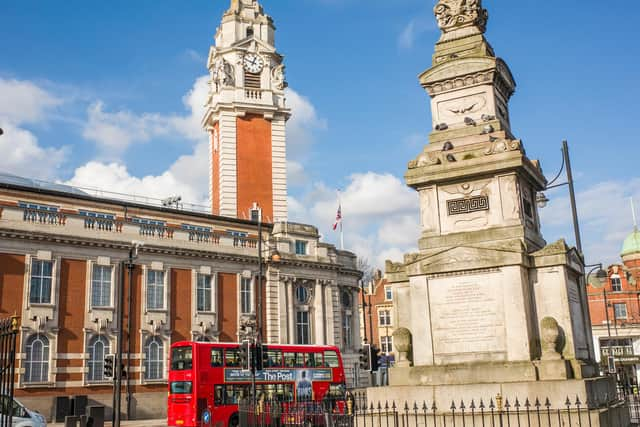Lambeth council: hundreds of children in care sexually abused by paedophiles in ‘toxic power game’, report finds
This article contains affiliate links. We may earn a small commission on items purchased through this article, but that does not affect our editorial judgement.
and live on Freeview channel 276
Hundreds of vulnerable children in the care of Lambeth council in south London were sexually abused by paedophiles and treated as “pawns in a toxic power game” between politicians, a damning report into decades of abuse has found.
Council staff “put vulnerable children in the path” of sex offenders and “treated children in care as if they were worthless”, according to the findings of the Independent Inquiry into Child Sexual Abuse (IICSA).


At a glance: 5 key points
Advertisement
Hide AdAdvertisement
Hide Ad- It heard evidence of children being raped, indecently assaulted and sexually abused, but said that of complaints from 705 former residents across three such facilities, only one member of senior staff was ever disciplined.
- When children reported complaints at the time, they were routinely disbelieved.
- The report estimated the number of those abused was likely much higher and recommended the Metropolitan Police should consider whether there were grounds for a criminal investigation into one boy who died in a care home in 1977, having previously complained of being abused by a senior member of staff.
- The report identified a “culture of cover‑up” and a “lack of concern for the day‑to‑day lives of children in its care”.
Advertisement
Hide AdAdvertisement
Hide Ad- Lambeth Council apologised and said it fully accepted the recommendations of the report.
What’s been said
John O’Brien, secretary to the inquiry, said this report was the worst of the 15 issued by IISCA to date.
He told the PA news agency: “It didn’t matter which corner you look in here, you found a failure or a number of failures.
“It’s the only report where, reading through it, I’ve had to put it down at regular intervals because what it’s describing is just unrelenting.
Advertisement
Hide AdAdvertisement
Hide Ad“Everything you read just made you think: I know when I turn the next page I am just going to read another story of something not happening.”
The report said: “Children in care became pawns in a toxic power game within Lambeth Council and between the council and central government.
“This turmoil and failure to act to improve children’s social care continued into the 1990s and beyond.”
Background
The inquiry into Lambeth Council, held in the summer of 2020, examined five facilities – Angell Road, South Vale Assessment Centre, the Shirley Oaks complex, Ivy House and Monkton Street – dating back to the 1960s.
Advertisement
Hide AdAdvertisement
Hide AdThe report highlighted the case of Michael John Carroll, a member of staff at the Angell Road children’s home who had failed to disclose in the 1970s a previous conviction for child sexual abuse but was retained when this was eventually found out.
He was subsequently convicted in 1999 of 34 counts of child sexual abuse, including of two boys in the care of Lambeth Council between 1980 and 1983.
The report found “clear evidence” that sexual offenders and those suspected of sexual abuse were co-workers in Lambeth Council’s children’s homes at the same time.
Carroll also had a role in recruiting staff and investigations at Angell Road.
A message from the editor:
Advertisement
Hide AdAdvertisement
Hide AdThank you for reading. NationalWorld is a new national news brand, produced by a team of journalists, editors, video producers and designers who live and work across the UK. Find out more about who’s who in the team, and our editorial values. We want to start a community among our readers, so please follow us on Facebook, Twitter and Instagram, and keep the conversation going.
